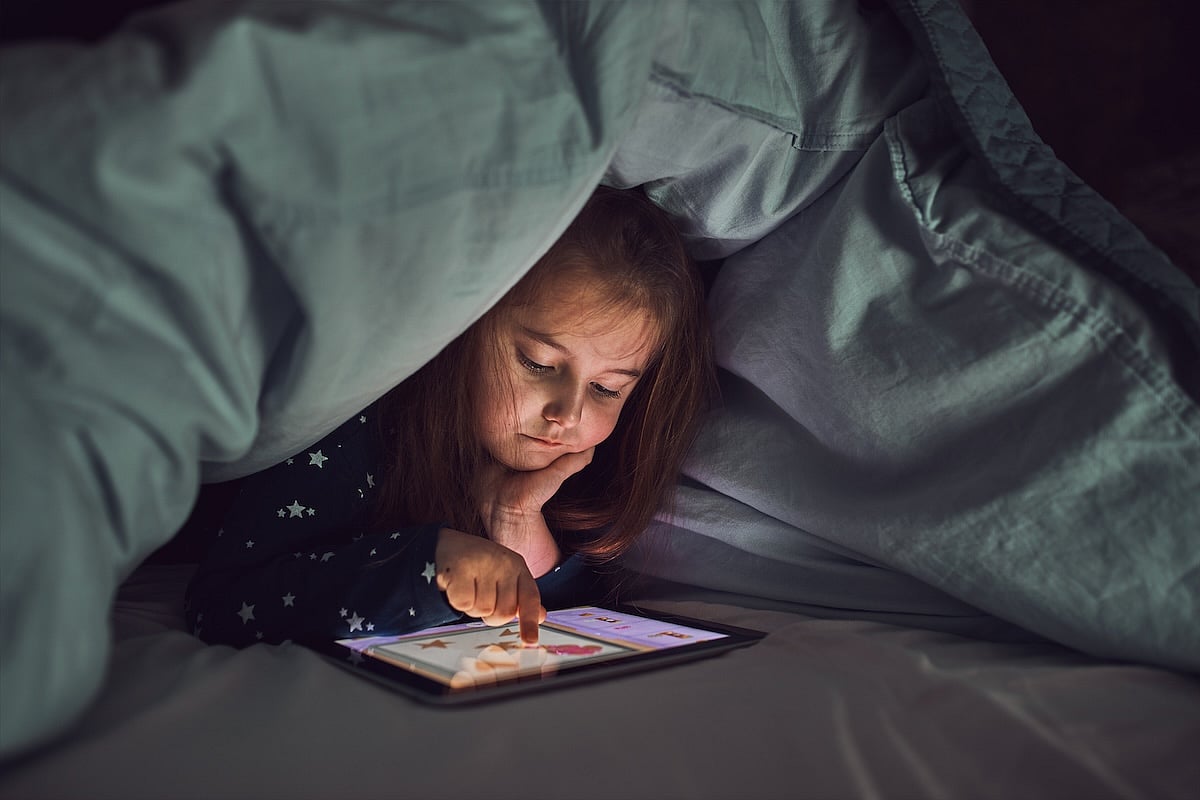Get Healthy!

- Dennis Thompson
- Posted June 12, 2025
Screen Time And Troubled Kids: Is There A Vicious Circle?
A “vicious circle” might exist between screen time and troubled children, a new evidence review says.
Screen time — particularly on video games — appears to contribute to emotional turmoil among children, researchers say.
Those troubled kids are then more likely to turn to screens to make themselves feel better, according to a study published June 9 in the journal Psychological Bulletin.
“Children are spending more and more time on screens, for everything from entertainment to homework to messaging friends,” senior researcher Michael Noetel, an associate professor in the School of Psychology at Queensland University in Australia, said in a news release.
“We found that increased screen time can lead to emotional and behavioral problems, and kids with those problems often turn to screens to cope,” Noetel said.
His team pooled data from 117 studies involving more than 292,000 children around the world. All of the studies included a look at children’s screen use as well as their emotional health and conduct.
Results show that the more children engage with screens, the more likely they are to suffer problems like anxiety, depression, aggression and hyperactivity.
In turn, children with these problems were more likely to turn to screens as a coping mechanism, researchers found.
Gaming was associated with higher risk of emotional problems compared with educational or recreational screen use, results show. Likewise, kids with emotional or behavioral problems were more likely to turn to games to cope.
Compared to younger kids, 6- to 10-year-olds were more vulnerable to the emotional problems associated with increased screen use, researchers found.
Girls were more likely to develop emotional troubles with greater screen use, while boys were more likely to increase their screen use in response to emotional or behavioral problems.
The findings suggest that parents should be cautious about what screens they allow and how much time kids spend on them, Noetel said.
Parents might also consider overuse of screens as a potential sign that their child is grappling with emotional problems, and offer support as well as restrictions, he added.
By pooling this large amount of data, Noetel said researchers come closer to drawing a direct cause-and-effect relationship between screen time and emotional problems in kids, even though such a link still hasn’t been firmly proven.
“It’s about as close as we can get to causal evidence without randomly cutting screens for thousands of kids,” Noetel said. “But still, we can’t completely rule out other factors — like parenting style — that could influence both screen use and emotional problems.”
More information
The American Academy of Pediatrics has more about screen time guidelines for children.
SOURCE: American Psychological Association, news release, June 9, 2025
What This Means For You
Parents should look at their children’s overuse of screens as a potential warning sign of emotional problems, and offer them support as well as restrictions, experts say.

